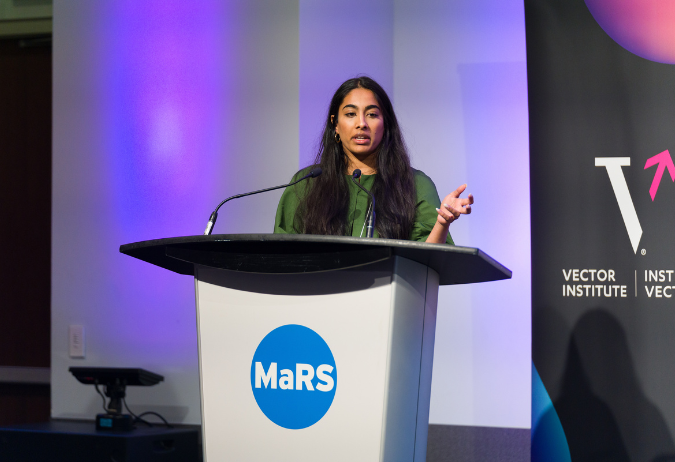
Building a stronger health care system through AI
Vector’s health AI ecosystem fosters innovation and privacy-enabled access to high-quality data for analysis, which allows AI researchers to address complex health system challenges such as staffing, wait times, and improving patient outcomes.
Responsible Health Data Access for Research
Realizing the potential of AI to improve patient care and reduce health service delivery costs begins with access to high-quality data.


GEMINI Project
GEMINI is one of Canada’s largest hospital data and analytic networks. Based at Unity Health Toronto, it is a network of over 30 hospitals across Ontario contributing deidentified clinical data from more than 1.6 million hospitalizations (over 2.2 billion data points) from all adult medical specialties.
Putting AI health research into practice
Improving health outcomes for everyone. Vector is helping to deploy AI research and technology into the healthcare industry.

To support healthcare organizations to harness the power of AI, Vector developed our Health AI Implementation Toolkit. The toolkit is designed for individuals who have developed a robust, mature health AI model or application and are looking to deploy their solution in a clinical environment. It offers an actionable, itemized checklist at each step of AI implementation, helping to mitigate the risk of overlooking common deployment barriers like data security, model performance, and bias.

Pathfinder Projects
Pathfinder Projects are small-scale proof of concepts designed to produce tangible results that improve services and guide future research and technology adoption. Following early successes of proof of concept projects, we have been able to demonstrate how world-class machine learning research can be translated into widespread benefits for patients and the health system.

Health Deployment Symposiums
The 2020 Vector and SickKids Health AI Deployment Symposium and the 2022 Vector Health AI Deployment Symposium showcased examples of AI research translated into practice in health care.

CyclOps
Developed by Vector’s AI Engineering and Health AI Implementation teams, CyclOps is a set of evaluation and monitoring tools that health organizations can use to develop and evaluate sophisticated machine learning models in clinical settings across time, locations, and cohorts.
The latest AI health research new

Transforming Youth Mental Health Support: FAIIR’s AI-Powered Crisis Response Model

Leveraging Large Language Models for More Efficient Systematic Reviews in Medicine and Beyond

Vector workshops give insights into responsible health AI deployment
Partner with Vector
We are uniquely positioned to convene and facilitate partnerships among scientists, government, and public health institutions to help health practitioners and policy-makers use the best-available AI tools to improve patient outcomes and health care delivery.
